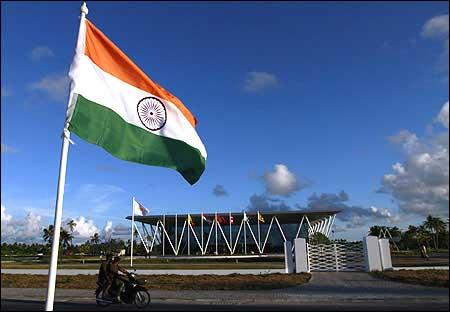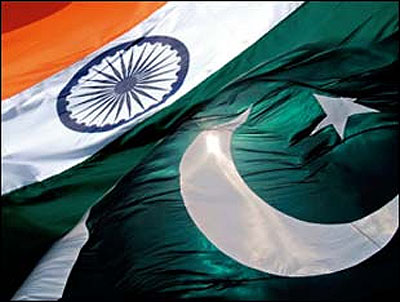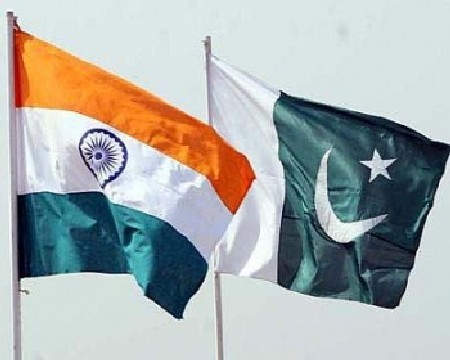
The SAARC nations have been more pragmatic than their peers in the ASEAN and EU, indicated an official source on the eve of the 17th SAARC Summit to be held in Male on November 10-11, even as Prime Minister Manmohan Singh left for Maldives for the SAARC Summit on Wednesday.
One should not expect spectacular results from every Summit held, the source said.
"The untold story of the last ten years is the slow, quiet economic integration of our SAARC (South Asian Association for Regional Cooperation) neighbourhood," he said.
Reflecting on the maturity exhibited and progress made by the eight-member South Asian Association of Regional Cooperation, he emphasised that the SAARC nations as a group, have done better than the ASEAN (Association of South East Asian Nations) and EU (European Union) that is trying to juggle up a plan that will help country's like Greece, Italy and to some extent Spain defaulting on their sovereign debt.
. . .

"In terms of actual integration, we formed the SAFTA (South Asian Free Trade Organisation) in 2004 in Islamabad. And this in just within two decades of SAARC coming into existence," he said.
He said that India's emergence as an economy that has consistently recorded 7 per cent GDP growth has made it the catalyst for the region becoming more pragmatic.
Drawing attention to the recent cordiality in relations between India, Pakistan, Nepal and Bangladesh (all SAARC nations), he said, "Whatever is going to happen between India and Pakistan and between Pakistan and Afghanistan is going to affect the rest of the countries. We should not let bilateral issues between two nations hijack the agenda of growth and economic prosperity in SAARC nations."
. . .

He pointed out that SAARC didn't stop after what happened in Mumbai (26/11). However, he said that such pragmatism will not stall India going ahead with discussing cross border terrorism and other sensitive issues with Pakistan during the SAARC Summit.
Prime Minister Manmohan Singh and his Pakistani counterpart Yousuf Raza Gilani are likely to discuss a number of such thorny issues during a bilateral between the two nations in Madlives on Thursday.
However, this source cautioned, "I think one will have to wait and see what will come out of this Summit."
Speaking about how the quantum of trade between the two warring neighbours will rise in the next two years he said while the official Indo-Pakistan trade figure stands at $2.9 billion in reality it is the range of $6 billion.
. . .

Another source, citing the Pakistani Planning Commission, said that Indo-Pak trade could hit the $10-billion mark in the next couple of years now that the latter has granted MFN status to India and is working at normalising trade relations with its one-time foe.
"Trade will actually increase. That is the untold story," he said to emphasie the fact that while security concerns will continue to be raised at bilateral fora, the regional giants will not let these concerns hijack economic imperatives.
"Nothing can stop an idea whose time has come," said he to make his point.